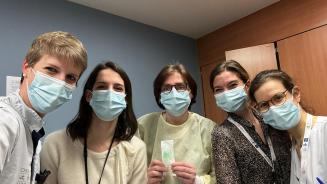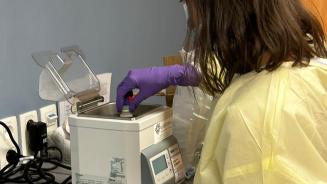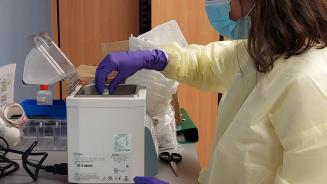Sickle Cell Disease: A Therapeutic Revolution
Congratulations to our researchers at the Children's Hospital (Huderf) for their exceptional contribution to this groundbreaking global advancement, highlighting gene therapy in the treatment of patients with sickle cell disease
This world-first was published in "The New England Journal of Medicine."
A major medical breakthrough has been unveiled with the publication of a study on sickle cell disease in the prestigious "The New England Journal of Medicine." This study showcases a revolutionary gene therapy that could transform the treatment of this hereditary blood disorder.
CRISPR-Cas9: A Promising Technology
Gene therapy using the CRISPR-Cas9 method allows scientists to modify DNA to reactivate the production of fetal hemoglobin. This form of hemoglobin is beneficial for patients with sickle cell disease as it reduces the severe symptoms of the condition. The treatment begins with the collection of the patient’s stem cells, which are then genetically modified in the laboratory before being reintroduced during the transplantation procedure after specific preparation.
Encouraging Results
The phase 3 study revealed promising results: 97% of treated patients experienced no vaso-occlusive crises for at least one year. These crises, characterized by intense pain and severe complications, are a major symptom of sickle cell disease. The reduction in these crises represents significant hope for patients.
Contribution of H.U.B and Dr. Laurence Dedeken
As specialists in hematology at the Queen Fabiola University Children's Hospital (H.U.B), Dr. Dedeken, the research team, and the Hemato-Oncology department played a key role in this study. Their work will improve the quality of life for patients with sickle cell disease.
Join Us on June 19th
Research on gene therapy will be presented on June 19th during the World Sickle Cell Day event at H.U.B. To participate in this event and learn more about this breakthrough, sign up here.



